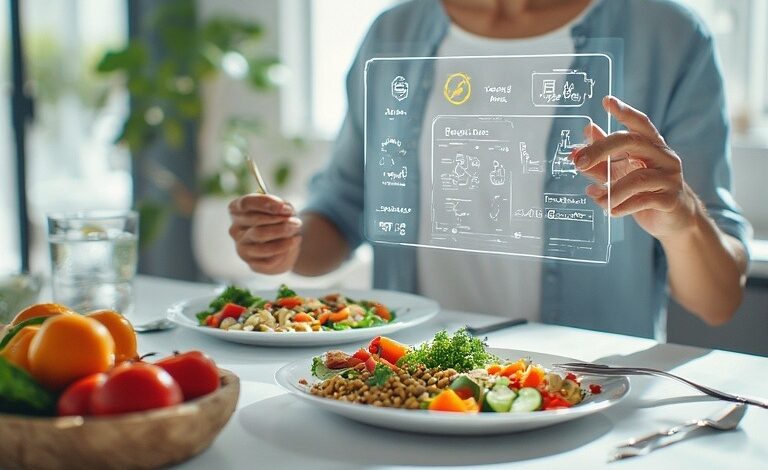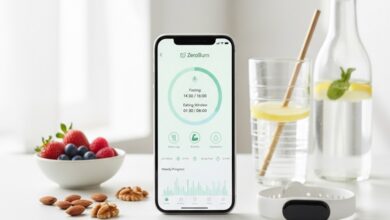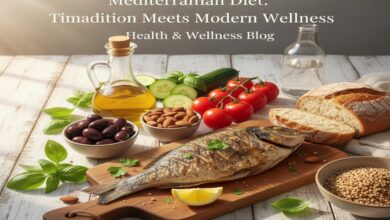Personalized Fuel: Diet Plans Designed for Modern Lifestyles

Gone are the days when “one-size-fits-all” diets promised quick results. In 2025, health and nutrition are all about personalization—fueling the body according to lifestyle, goals, and even genetic makeup. Whether you’re a busy professional, a fitness enthusiast, or someone looking for balance, modern diet plans adapt to your unique needs. Let’s review how traditional diets compare with today’s personalized nutrition, and why this shift is redefining healthy living.
🍞 Generic Diets vs. Lifestyle-Specific Plans
For decades, people followed popular diets like low-carb, keto, or paleo—hoping they’d work universally. While effective for some, they often failed because they didn’t account for individual differences.
✨ Modern approach: Personalized diets are built around activity levels, daily routines, and stress patterns. For example, a corporate worker might need brain-fueling meals rich in omega-3s, while an athlete requires protein-heavy, recovery-focused nutrition.
🔍 Comparison:
- Old way: Copy-paste diets, same rules for everyone.
- New way: Lifestyle-driven diets that fit seamlessly into daily life.
🧬 Guesswork vs. DNA-Based Nutrition
Traditional diets relied on trial and error—trying different foods to see what worked. But results were inconsistent and frustrating.
✨ Modern approach: Advances in science now allow DNA and gut microbiome testing to guide diet choices. These tests reveal how your body processes carbs, fats, and proteins, ensuring a diet that maximizes results without unnecessary restrictions.
🔍 Comparison:
- Old way: Random experiments with food.
- New way: Precision eating based on genetic insights.
⏰ Strict Meal Timing vs. Flexible Nutrition
Old-school dieting was rigid—three fixed meals a day or strict fasting schedules. This often clashed with modern busy lifestyles.
✨ Modern approach: Diet plans now focus on flexibility. Intermittent fasting, time-restricted eating, and even “snack-style meal prepping” help people eat when it works for them. The key is balance, not perfection.
🔍 Comparison:
- Old way: Strict meal rules leading to stress.
- New way: Flexible eating that adapts to real-life schedules.
🌍 Western Diets vs. Global Inspirations
In the past, many diet plans leaned heavily on Western templates—lean meats, salads, and protein shakes. While effective, they lacked diversity.
✨ Modern approach: Today’s diets embrace global superfoods and culinary traditions. From Japanese fermented foods for gut health to Mediterranean olive oil for heart health, diet plans now borrow the best from around the world.
🔍 Comparison:
- Old way: Limited, repetitive food options.
- New way: Cultural fusion diets that are exciting and beneficial.
📱 Manual Tracking vs. Smart Nutrition Apps
Traditional dieting often meant manually counting calories or scribbling meal logs in a notebook. Time-consuming, and often inaccurate.
✨ Modern approach: AI-powered apps now scan barcodes, log meals instantly, and provide real-time feedback. Some even sync with wearables to suggest meal timing based on your activity and sleep cycles.
🔍 Comparison:
- Old way: Manual tracking, prone to errors.
- New way: Smart apps that make precision effortless.
🥑 Restrictive Eating vs. Balance & Variety
Older diet culture promoted elimination—no carbs, no sugar, no fat. While this sometimes worked, it left people feeling deprived.
✨ Modern approach: Balance is the new mantra. Diet plans now emphasize 80/20 eating—80% nutrient-dense foods and 20% indulgences. This way, you can enjoy a slice of pizza or dessert without guilt while staying on track.
🔍 Comparison:
- Old way: Harsh restrictions, leading to binge cycles.
- New way: Balanced eating that supports consistency and mental well-being.
💼 Dieting Alone vs. Community Support
Previously, weight management was often an individual struggle—private journaling, home workouts, and silent battles.
✨ Modern approach: Nutrition today is more community-driven. Online coaching groups, social media challenges, and recipe-sharing platforms create support systems where people learn, stay motivated, and celebrate progress together.
🔍 Comparison:
- Old way: Isolated dieting.
- New way: Social accountability and encouragement.
🔮 Final Thoughts: The Future of Dieting
Diet plans are no longer about forcing your body into a template—they’re about creating a tailored lifestyle strategy. By combining genetics, technology, and global nutrition trends, today’s personalized fuel ensures that:
- Meals fit into busy lives ⏰
- Food supports long-term wellness 🧘♀️
- Balance, not restriction, drives success 🥑
- Science, not guesswork, guides progress 🧬
✅ Verdict:
Traditional diets made people chase results through restriction. Modern personalized diet plans, however, make nutrition sustainable, flexible, and enjoyable—truly fueling both the body and lifestyle.




